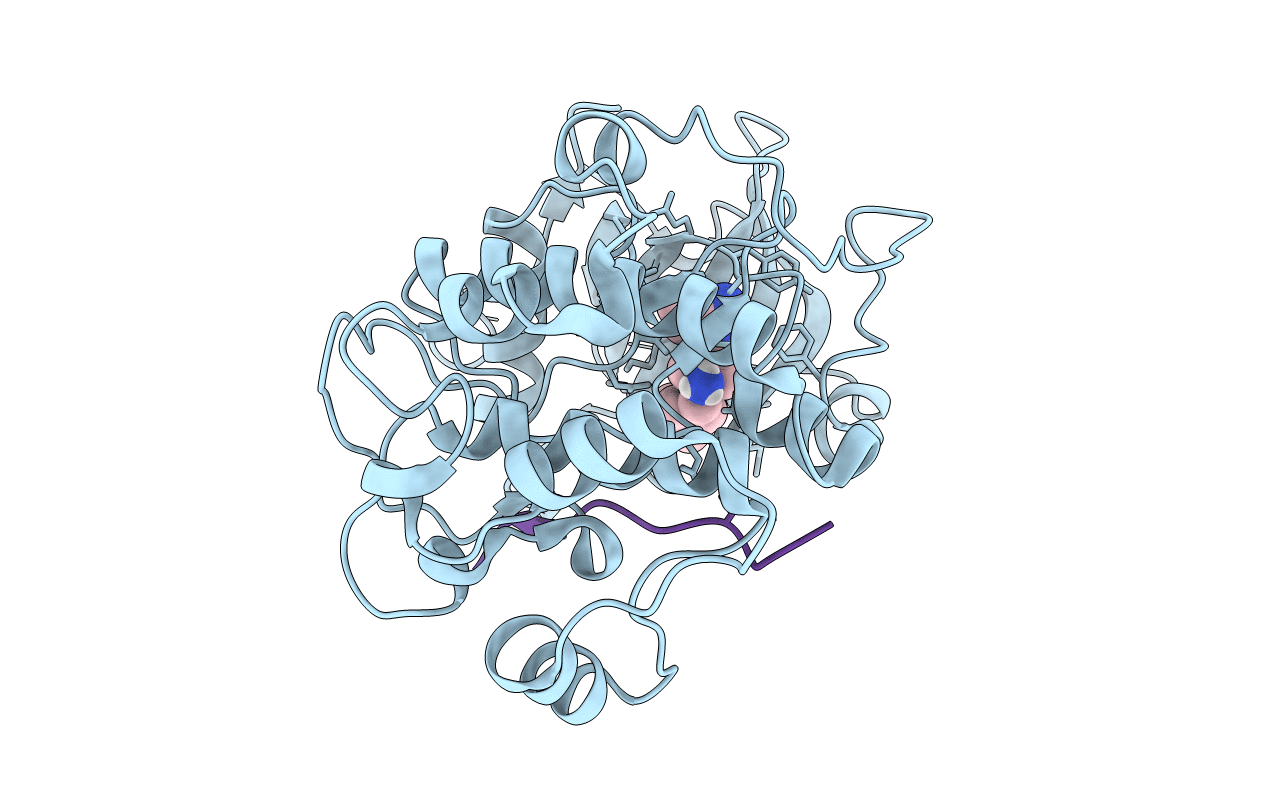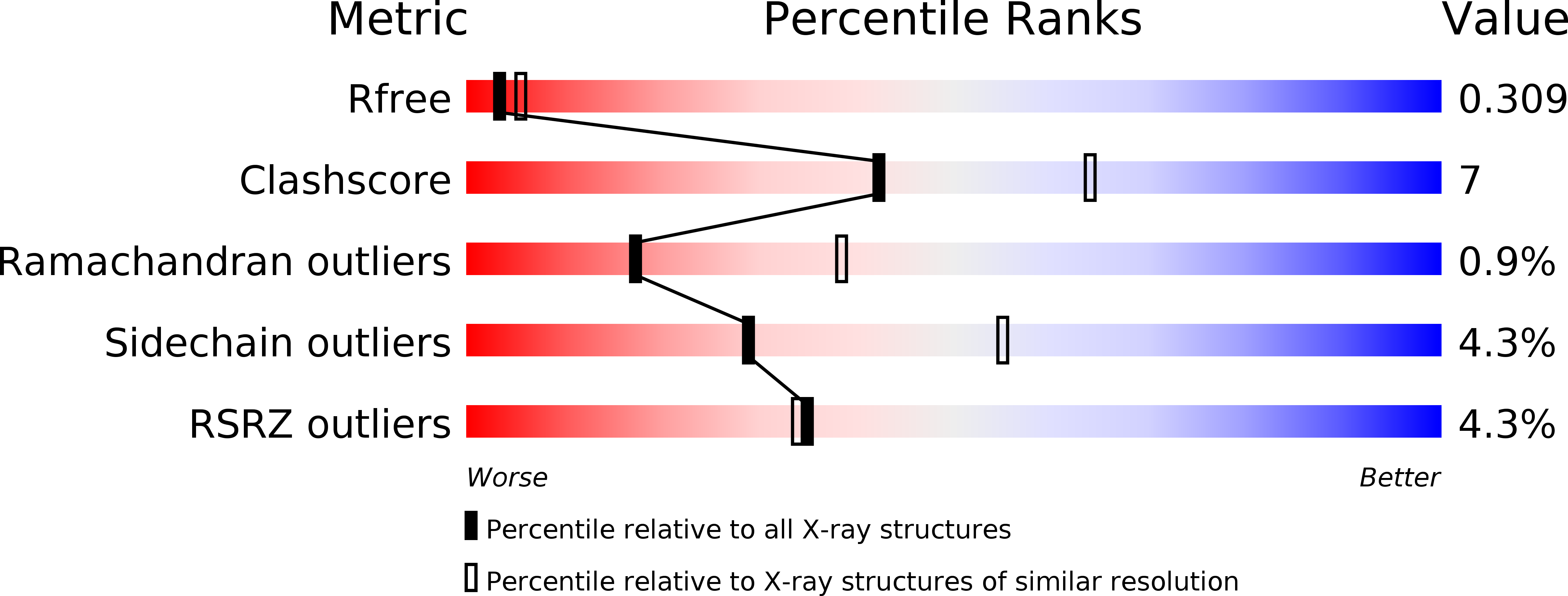
Deposition Date
2010-06-09
Release Date
2010-06-16
Last Version Date
2024-10-16
Entry Detail
PDB ID:
2XH5
Keywords:
Title:
Structure of 4-(4-tert-Butylbenzyl)-1-(7H-pyrrolo(2,3-d)pyrimidin-4- yl)piperidin-4-amine bound to PKB
Biological Source:
Source Organism(s):
HOMO SAPIENS (Taxon ID: 9606)
Expression System(s):
Method Details:
Experimental Method:
Resolution:
2.72 Å
R-Value Free:
0.30
R-Value Work:
0.21
R-Value Observed:
0.21
Space Group:
P 21 21 21


